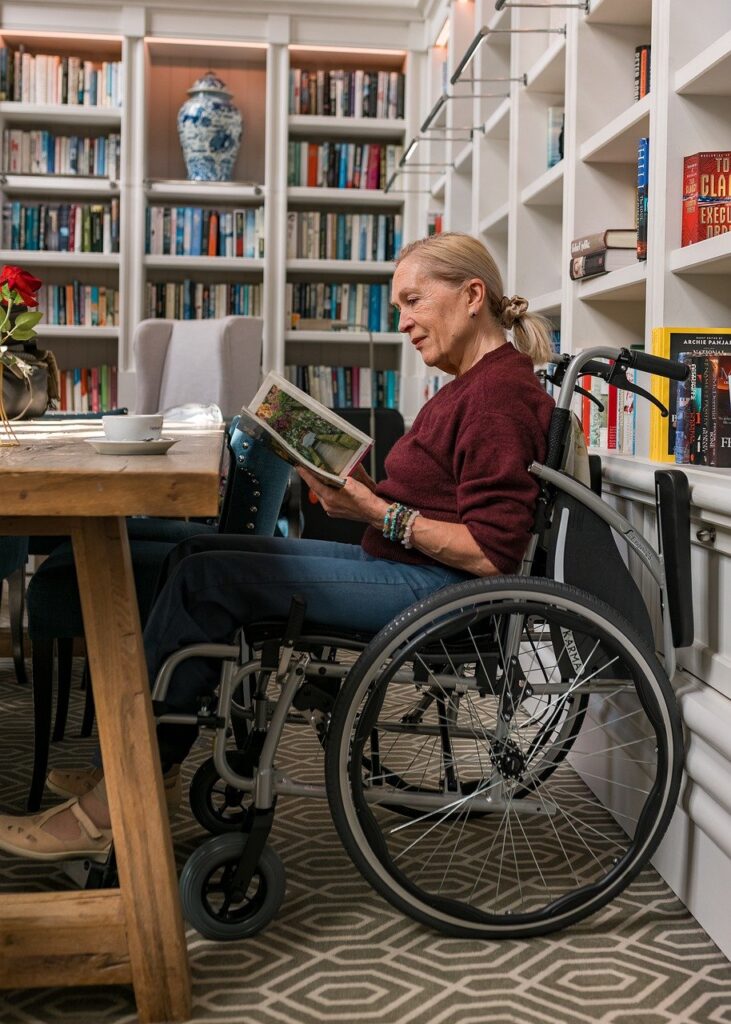Long-Term Care Planning, Powers of Attorney, & Advanced Medical Directives

Long-Term Care Planning
Long-Term Care Planning is the process of developing a plan to meet the present and future care needs of seniors or disabled persons.
Angela Griffith provides advice on options available for long-term care in the private and public sector.
As part of her Long-Term Care Planning advice, Angela Griffith is happy to review contracts for nursing homes, assisted living facilities and continuing care retirement communities. In addition, she is part of a network of non-legal professionals that can assist in determining and locating appropriate residential placement and other needed services.
Long-Term Care planning also includes advising clients about government benefit programs such as Medicare, and Medicaid. Angela then can draft all the necessary legal documents.
Powers of Attorney
Powers of Attorney allow someone (an “Agent”) to assist in managing a person’s affairs when the individual cannot or does not want to do it. Powers of Attorney are particularly important to assist elderly and disabled persons in planning for possible incapacity and avoiding Court intervention. Angela Griffith can draft both Financial Powers of Attorney and Medical Powers of Attorney. When requested, Angela Griffith can serve as the Agent.
General Or Financial Power Of Attorney Q & A:
What Is A Power of Attorney?
It is a written document in which one person (called the “principal”) appoints another as his agent (also called the “attorney-in-fact”). The document gives the agent authority to act for the principal. What the agent can do will be stated in the document.
When Is A General or Financial Power of Attorney Used?
It is used in any situation where you desire or need someone else to handle some or all of your personal affairs now or upon the occurrence of a particular event. For example, it may be inconvenient for you to handle some personal business matter in a distant place. A power of attorney may be used to allow someone else the matter for you. Similarly, you may need someone else to handle your affairs for you because of illness.
What Is The Difference Between A General Power Of Attorney And A Specific Power Of Attorney?
If you give your agent the power to transact virtually all personal business that might require your presence or signature, this is called a General Power of Attorney. If you limit your agent to one or a few very specific tasks, such as selling one particular piece of property for you, this is called a “Special Power of Attorney. Even a General Power of Attorney will require that the powers given be specified. Courts generally do not find documents saying “my agent can do anything I can do” acceptable.
Who May Make A Power Of Attorney?
To make a power of attorney you must be over 18 years of age and mentally competent. Once an individual is no longer mentally competent, he or she cannot make a power of attorney.
Who May Be An Agent?
To be an agent, a person must be over 18 and competent. A corporation, e.g. a bank or law firm, may also serve as an agent. No matter who is chosen, the agent should be someone trustworthy, especially if you are giving the agent substantial power and control over your financial affairs.
What Happens If I Do Not Have An Agent But I Need Help With My Financial Affairs?
At that time, someone would have to file a petition asking a court to appoint a Conservator to act on your behalf for financial matters. A Conservator, like an agent, must be over 18 years and competent. A corporation may also serve. A Conservator must file accountings with the Court. This provides greater oversight than is normally available with a Power of Attorney. Because of the Court’s initial and continuing involvement, Conservatorships are much more expensive and can be much more limiting than Powers of Attorney.
May My Agent Use My Power of Attorney After I Die?
Your agent’s authority to act for you ends at your death. If needed, an executor or administrator for your estate will take over responsibility for your financial affairs.
MEDICAL POWER OF ATTORNEY Q & A:
What Is A Medical Power of Attorney?
A Medical Power of Attorney gives your agent the authority to make medical decisions for you. As with a General Power of Attorney, what the agent can do will be stated in the document.
Can My Agent Override My Decisions?
Your agent may not override your decisions unless two doctors say you are incapable of making your own decisions. Whether you lack capacity is generally determined by a doctor. If the decision concerns end-of-life decisions, two doctors must make the decision.
When Is A Medical Power Of Attorney Used?
It is used in any situation where you desire or need someone else to help you with medical decisions or where you wish to give someone access to medical information. A Medical Power of Attorney may authorize your agent to hire medical and other personnel, to select health care facilities, to access confidential medical records and to authorize medical treatment. It can also give directions concerning the use, withholding or withdrawal of life prolonging medical treatment.
Who May Make A Medical Power Of Attorney?
To make a Medical Power of Attorney you must be over 18 years of age and mentally competent. Once an individual is no longer competent, he or she cannot make a Medical Power of Attorney.
Who May Be An Agent?
To be an agent, a person must be over 18 and mentally competent. A corporation may also serve as an agent. No matter who is chosen, the agent should be someone you trust and someone who can deal with medical issues.
What Happens If I Do Not Have An Agent But Can No Longer Make Medical Decisions?
At that time, someone will have to file a petition asking a court to appoint a Guardian to act on your behalf for medical matters. A Guardian, like an agent, must be over 18 and competent. A corporation may also serve as Guardian. A Guardian must file annual reports with the Court.

Advanced Medical Directives
Advance Medical Directives are used to express your wishes for medical treatment not only regarding end-of-life treatment but whenever you are ill and unable to communicate your wishes. People have widely differing views regarding their care. Angela Griffith clients complete a comprehensive questionnaire raising questions about treatment desired under a variety of scenarios. Based on the responses contained in the questionnaire she is able to draft customized Advance Medical Directives that reflect her clients’ personal preferences or religious beliefs. This process provides detailed guidance for making medical decisions which reflect our clients’ specific desires.
Advanced Medical Directives FAQs
What Is An Advance Medical Directive?
An Advance Medical Directive is similar to a Living Will in that it allows you to state your wishes concerning life prolonging treatment in the event you are terminally ill, death is imminent, and the medical procedures serve only to artificially prolong the dying process. However, an Advance Medical Directive, unlike a Living Will, also allows you to express your wishes regarding medical treatment in situations other than a terminal illness where death is not imminent such as when you are in a vegetative state or in a coma with no likelihood of recovery, or when the quality of your life has greatly diminished.
Can An Advance Medical Directive Require That All Care be Given?
Yes. It is your choice to explain when you do want care, not just when you do not want care.
Why Should I Prepare An Advance Medical Directive?
This document helps ensure that your doctor and family will know and respect your wishes. It also helps relieve the stress and conflicts caused when family members have to guess what you would have wanted.
When Is An Advance Medical Directive Used?
It is used when you are unable to express your wishes concerning your medical care temporarily or permanently. You may direct that the written document must be followed or you may permit your medical agent to deviate from the document.
Who May Make An Advance Medical Directive?
To make an Advance Medical Directive you must be over 18 years of age and competent. Once an individual is no longer competent, he or she cannot make an Advance Medical Directive.